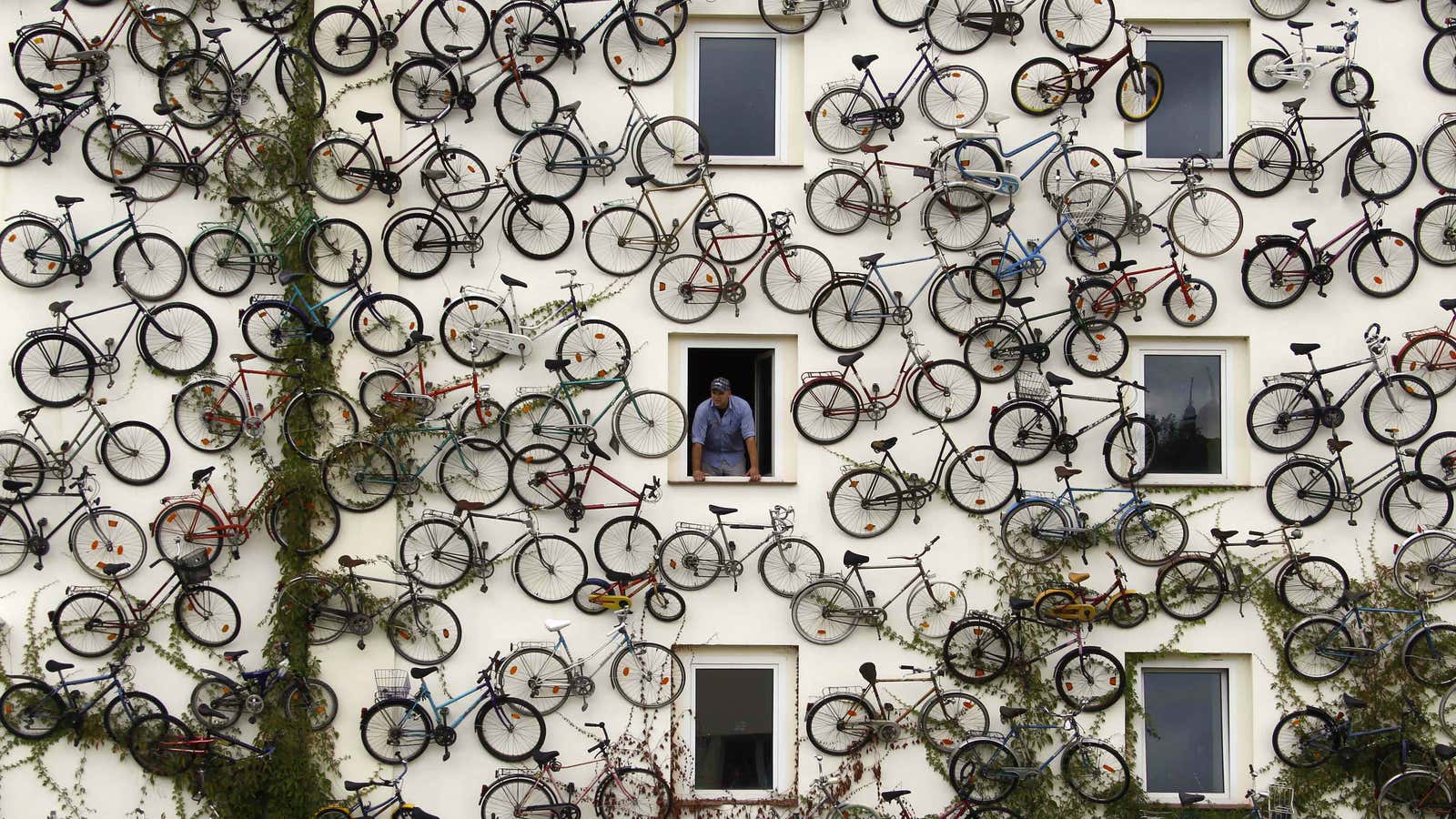More than 5.5 million around the world die prematurely every year due to air pollution—it’s the biggest environmental health risk. In a bid to tackle air pollution, governments are desperate to get people to stop using cars.
Italy’s economic powerhouses, Milan and Rome, have had to restrict car use for several days as a result of dangerous smog build up, and Milan—with a population of 1.25 million people and among the most polluted cities in Europe—is the latest city to propose paying commuters to bike to work.
Milan’s councillor for mobility, Pierfrancesco Maran, told The Guardian he wants to “reimburse those who go to work by bike, a project similar to the one in France.”
The well-publicized French scheme, first trialled in 2014, was a six-month experiment that paid commuters to work. Twenty companies that employed a total of 10,000 people signed up to the scheme; the companies would pay their staff 25 euro cents per kilometer cycled to work.
But was it successful? Out of all those people, only 419 people agreed to cycle to work. Nineteen percent of those cyclists had switched from driving; most were already car-pooling. The French transport minister had hoped the scheme would increase bike use for commuting by 50%. The number of commuters who switched from their own cars was actually closer to 5%.
Though there’s evidence to show a need for paid cycle-to-work schemes, some researchers argue these schemes aren’t enough. Currently, the benefits of commuting to work by other modes of travel dwarf cycling-related benefits. Governments also need to consider improving parking infrastructure and companies should provide shower facilities, critics say.
In any event, another small Italian town is also experimenting with the idea. Massarosa, a small town just north of Pisa, also launched a similar pilot scheme last year. Fifty workers were included in the 12-month scheme, which will use an app to record distance travelled each day.
